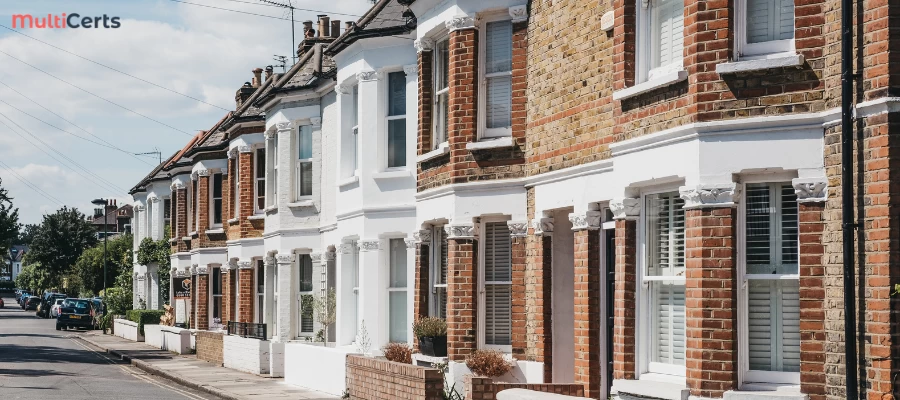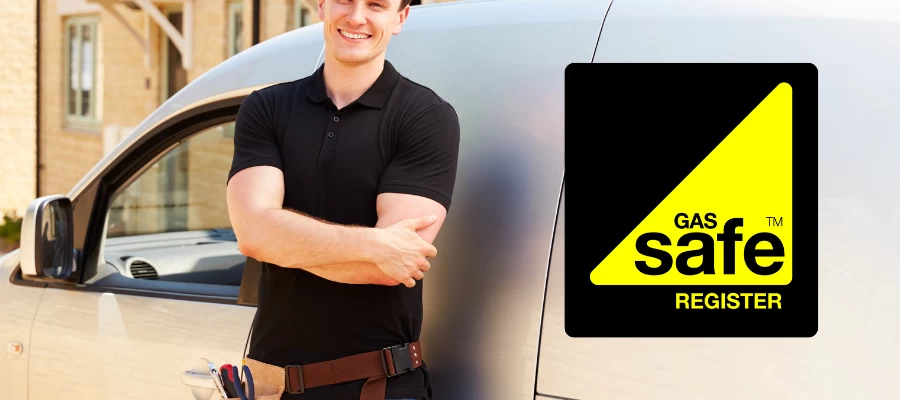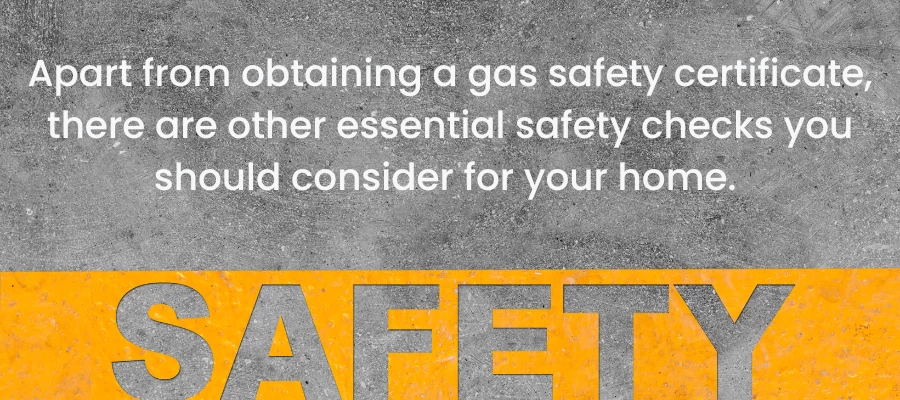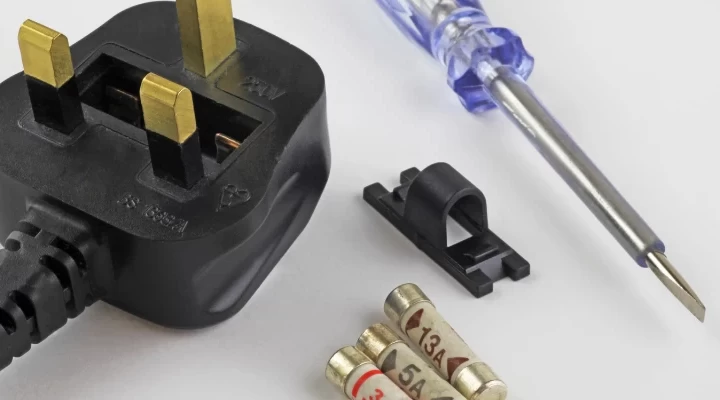Table of Contents
It is important to note that in the UK, landlords are legally required to obtain a gas safety certificate annually to ensure the safety of their tenants and property. Although homeowners are not subject to the same legal obligations, scheduling an annual gas safety inspection is highly recommended as a responsible and safety-conscious measure. By doing so, you can help prevent gas-related accidents and ensure the well-being of you and your family.
To obtain a gas safety certificate, you will need to schedule an appointment with a Gas Safe-registered engineer. They will visually inspect your gas appliances and accessible pipework to ensure they are in good condition and will test the pipework for any gas leaks. By maintaining a regular gas safety inspection schedule, you can stay ahead of potential dangers and ensure the safety and efficiency of your gas appliances.
Do Homeowners Need a Gas Safety Certificate?
Legal Requirements for Homeowners
As a homeowner, it's essential to ensure the safety of your gas appliances. However, legally speaking, you are not required to have a gas safety certificate. This type of certificate is issued by Gas Safe engineers after a thorough inspection of gas appliances, providing assurance that they are safe to use. While not mandatory, acquiring a gas certificate can provide peace of mind that your home and appliances are secure.

Rental Properties
For landlords and rental properties, the situation is different. It is a legal requirement in the UK for landlords to obtain a Gas Safety Certificate every year to ensure the safety of their tenants and their property. Gas appliances within the property must be inspected annually by a professional, and a certificate must be issued as proof of compliance with the Gas Safety Regulations of 1998.
If you're a landlord, it's crucial to remember that your Gas Safety Certificate, also known as a CP12 Certificate, is valid for only 12 months. After this period, the certificate expires and must be renewed. If you fail to do so, you could face legal consequences and put your tenants and property at risk.
In summary, as a homeowner, you don't need a gas safety certificate, but it's highly recommended to ensure the safety of your home's gas appliances. If you're a landlord, obtaining an annual Gas Safety Certificate is a legal requirement to protect your tenants and your property. Remember to stay vigilant and schedule regular checks with a Gas Safe engineer.
Gas Appliances and Safety Devices
Gas Appliance Inspection
When it comes to gas appliances in your home, safety should be a top priority. To ensure that all the gas appliances are functioning properly and safely, it's important to schedule regular inspections with a Gas Safe engineer. During the inspection, the engineer will visually check the appliances and accessible pipework to identify any potential hazards or maintenance issues. Although homeowners are not legally required to have a gas safety certificate, obtaining one through a thorough inspection provides assurance that your home's gas appliances are safe to use.
A typical gas appliance inspection involves the following steps:
-
Turning off your gas supply at the meter to ensure it's safe to carry out the checks.
-
Visually inspect the gas appliances and pipework for any signs of wear, damage or corrosion.
-
Testing the pipework for any gas leaks, ensuring there's no risk of gas escape.
-
Check that gas appliances are properly ventilated to avoid the build-up of harmful gases, such as carbon monoxide.
Safety Device Checks
In addition to inspecting the gas appliances themselves, it's crucial to check the safety devices installed in your home. These devices serve to protect you and your family from any potential hazards related to gas appliances. Here's a list of essential safety devices that should be checked during a gas safety inspection:
-
Carbon monoxide (CO) detector: These devices detect the presence of deadly carbon monoxide gas, an odourless and colourless by-product of incomplete combustion in gas appliances. A functioning CO detector will sound an alarm if high levels of CO are detected, giving you time to evacuate the premises and call for assistance.
-
Gas shut-off valve: A gas shut-off valve allows you to turn off the gas supply to specific appliances or the entire home in the event of a gas leak or emergency.
-
Ventilation systems: Proper ventilation ensures that harmful gases, such as carbon monoxide, are quickly expelled from your home. Check that vents and chimneys are unblocked and functioning correctly.
-
Appliance safety controls: Gas appliances are equipped with safety controls that automatically shut them down in the event of a malfunction. Make sure that these controls are working properly on all of your gas appliances.
By conducting regular gas appliance inspections and safety device checks, you'll be taking the necessary steps to safeguard your home and keep all the gas appliances functioning safely and efficiently.

Gas Safe Registered Engineer
Gas Safe Register
The Gas Safe Register is the official list of gas engineers who are registered and qualified to work safely and legally on gas appliances. As a homeowner, you are not legally required to hold a gas safety certificate, but it is highly recommended that you only hire a Gas Safe registered engineer to conduct any necessary checks and services on your appliances. This ensures the safety of your home and your appliances' optimum performance.
Hiring a Gas Engineer
When hiring a gas engineer, you should always:
-
Verify their Gas Safe registration by checking their ID card
-
Read reviews and recommendations from previous clients
-
Request a written quote including a detailed breakdown of costs
By following these steps, you ensure that you are hiring a reputable, competent, and registered gas engineer for your home.
Gas Safety Report
Once a gas engineer has completed their checks and services, they will provide you with a gas safety report, although it is not required by law for homeowners. However, a thorough inspection backed by a gas safety report can provide you with the assurance that your home appliances are safe and working efficiently.
The report will include crucial information such as:
-
A list of checked appliances
-
The checks performed during the inspection
-
Results of the inspection and recommendations, if any
Having this information at hand will not only ensure the safety of your home but also make you aware of any possible future issues that could arise, thus helping you make informed decisions about your appliances' maintenance and longevity.
Additional Safety Checks
Apart from obtaining a gas safety certificate, there are other essential safety checks you should consider for your home. This section will guide you through additional checks, including boiler service and electrical installation condition checks.

Boiler Service
To ensure the efficiency and safety of your boiler, it's crucial to have it serviced regularly. A qualified engineer should inspect your boiler annually, examining its components for any potential issues and performing necessary maintenance. Guidelines for boiler service include:
-
Cleaning the boiler's heat exchanger and burner
-
Checking for any signs of wear or damage
-
Inspecting the flue system for obstructions and corrosion
-
Examining the seals and connections for gas leaks
-
Adjusting the boiler's pressure to the correct level
-
Testing the boiler operation and safety devices
By conducting regular boiler service, you can identify potential issues and prevent future breakdowns, ensuring your boiler remains in good working condition.
Electrical Installation Condition Report (EICR)
An Electrical Installation Condition Report (EICR) is a thorough inspection of your home's electrical wiring, sockets, and other installations. This check is performed by a registered electrician and ensures the safety and compliance of your property's electrical system. It is recommended that homeowners obtain an EICR every ten years. The main aspects covered in an EICR include the following:
-
Inspecting the wiring, circuits, and electrical appliances for damage or wear
-
Checking the earthing and bonding of electrical installations
-
Assessing the suitability of your electrical system based on the current standards
-
Identifying any potential hazards or issues that require attention
Upon completing the EICR, you'll receive a report outlining the condition of your electrical installations, along with any recommendations for improving safety. This vital document helps you maintain a safe environment for you and your family by reducing the risk of electrical accidents.
In conclusion, although a gas safety certificate is not a legal requirement for homeowners, obtaining additional safety checks, such as regular boiler servicing and an EICR, is crucial to ensure a secure and safe home environment.






